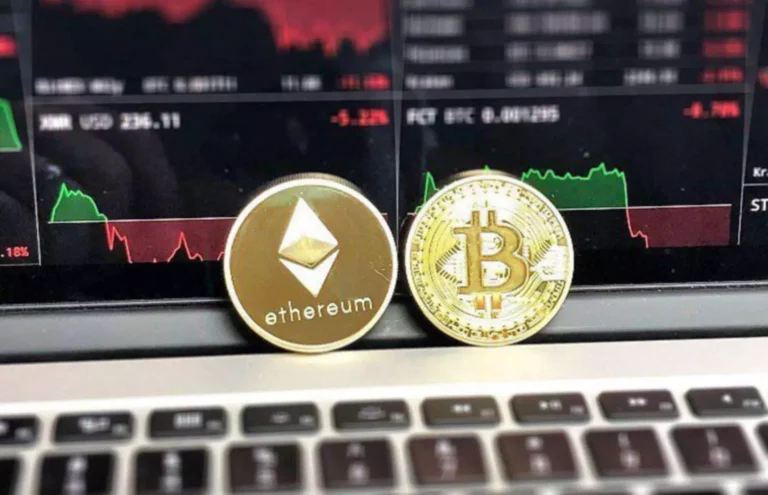As mentioned, an NDF is a forward contract whereby two parties agree on a forex price for a set future date, culminating in a cash settlement. The settlement amount differs between the agreed-upon ahead rate and the prevailing spot rate on the contract’s maturity date. One of the first benefits of NDF buying and selling is its capability to hedge towards currency danger. Currency danger https://www.xcritical.com/ refers again to the potential losses that may arise from fluctuations in trade charges. For businesses and investors working in several currencies, this danger can have a big impression on their backside line. By utilizing NDFs, traders can defend themselves from such dangers by locking in a predetermined trade rate for a future date.

An example of an NDF could probably be a U.S. firm coming into into a contract to sell Indian rupees and purchase U.S. dollars six months from now at a predetermined price. The firm may what is ndf do this, anticipating the rupee to depreciate against the dollar. Like any investment instrument, buying and selling forex NDFs has its own set of professionals and cons.
Disadvantages Of Ndfs
In easy phrases, NDF CFDs work like commonplace contracts for distinction, allowing traders to accumulate positions far past their current financial capabilities. It is not any secret that the buying and selling panorama repeatedly iterates on its mechanisms and concepts. Brokers, monetary institutions and market makers are frequently attempting to offer superior mechanisms that accumulate different strengths of current instruments. One such novel providing was recently introduced by the B2Prime liquidity supplier. Thus, quite a few circumstances of market volatility and liquidity considerations emerge at frequent intervals. The causes for worth variation may be socio-political, economic or strictly commercial.

A non-deliverable ahead (NDF) is a two-party foreign money derivatives contract to trade cash flows between the NDF and prevailing spot charges. The key facet of NDFs is that at no level are the underlying currencies exchanged. NDF contracts are typically traded over-the-counter (OTC), that means there is not a centralized change for buying and selling them.
This method is used to estimate equal interest rate returns for the two currencies concerned over a given time-frame, in reference to the spot price on the time the NDF contract is initiated. Other elements that can be significant in determining the pricing of NDFs embrace liquidity, counterparty threat, and buying and selling flows between the two international locations concerned. In addition, speculative positions in one foreign money or the opposite, onshore rate of interest markets, and any differential between onshore and offshore foreign money forward charges can even have an result on pricing. NDF costs can also bypass consideration of rate of interest factors and simply be based on the projected spot trade fee for the contract settlement date.
Importantly, a non deliverable ahead permits events to hedge against forex risk without needing to deal with the precise currencies concerned. Initially, two parties conform to a contract to change currencies at a particular price on a future date, known as the forward rate. This rate is commonly derived from the present spot price and adjusted for rate of interest differentials between the 2 currencies.
The Place Are Ndfs Traded?
NDFs traded offshore may not be subjected to the same laws as onshore foreign money trading. More unsure and unstable FX markets command a better risk premium, leading to wider differentials in NDFs in comparability with secure forex pairs. The difference in interest rates between the currencies in an NDF drive its pricing to a big extent. The currency with the higher rate of interest will trade at a ahead premium to the foreign money with a lower interest rate. Investors like hedge funds additionally use NDFs to speculate on emerging market foreign money actions.
Set stop-loss orders to limit potential losses and take-profit orders to secure your income. Regularly evaluate your trades and adjust your threat management methods as needed. Distinguishing itself from conventional providers, B2Broker has innovatively structured its NDFs as Contracts For Difference (CFDs).
Why Should A Broker Provide Ndf Trading?
With LCH ForexClear appearing because the Central Counterparty (CCP), it removes the necessity to have a centralised or bilateral credit model. Moreover, NDFs are quite complex and require substantial trading information to be executed. However, their elevated popularity regardless of the numerous technical challenges showcases the sheer significance and worth of NDFs on the worldwide market. Click on the offered link to study about the process for submitting a criticism on the ODR platform for resolving investor grievances. In India, Non-Deliverable Forwards (NDFs) are used primarily for currencies that have restrictions or are not absolutely convertible, just like the Indian Rupee (INR).

Yes, an NDF is usually used for hedging in opposition to forex fluctuations, especially in markets with restrictions on foreign money convertibility. A multinational company with important revenues in Indonesian Rupiah (IDR) makes use of NDFs to stabilize its earnings. Since the IDR is delicate to volatility, the company enters into NDF contracts to manage the danger of adverse currency actions impacting its reported earnings in its base forex.
Non Deliverable Ahead: Your Final Guide To Ndfs
While normal NDFs typically come with a T+30 settlement interval, B2Broker ensures purchasers can access settlements as CFD contracts on the following business day. This streamlined method mitigates consumer settlement risks and accelerates the complete course of, guaranteeing efficiency and confidence in their transactions. NDF contracts have become wildly well-liked as a end result of their capacity to open up otherwise restricted money markets to international traders.

This permits them to mitigate potential losses and preserve stability in their monetary operations. Whether you’re a multinational corporation or a person investor, using NDFs for hedging can provide peace of thoughts and defend your investments from forex volatility. NDFs, as the name suggests, are a sort of by-product contract that doesn’t involve the physical supply of the underlying currencies. Instead, they are settled in money, based on the difference between the contracted exchange price and the prevailing market fee on the time of settlement. This unique characteristic makes NDFs notably engaging for traders looking to hedge foreign money risk or speculate on rising market currencies. Interest rates are the commonest major determinant of the pricing for NDFs.
Delayed confirmations, increased cancellations and amendments increase the likelihood of operational points in OTC NDF markets in comparison with trade buying and selling. The opaque OTC nature of NDF markets makes coming into and exiting massive positions tougher. In addition to market-driven elements, the counterparty credit score threat is also factored into NDF pricing by sellers. Corporations can fantastic tune their hedging wants by way of tailored NDF contracts, not like standardized futures contracts.
When buying and selling NDFs, two parties enter into a contract that specifies the notional quantity, currency pair, settlement date, and exchange price. It is essential to notice that NDFs are traded over-the-counter (OTC), which means they are not traded on a centralized exchange. NDF stands for Non-Deliverable Forward, which is a by-product instrument used to commerce currencies that are not freely convertible. Unlike traditional foreign money buying and selling, the place bodily supply of the underlying forex takes place, NDFs are settled in money. An NDF is a financial contract that enables events to lock in a forex change fee, with the speed distinction settled in cash upon maturity somewhat than exchanging the currencies.
What Is The Distinction Between Outright Forward And Non-deliverable Forward?
On the opposite hand, an NDF does not involve the physical exchange of currencies. Instead, the difference between the agreed NDF price and the prevailing spot price at maturity is settled in money, typically in a significant foreign money just like the USD. This money settlement characteristic makes NDFs significantly helpful for hedging exposure to currencies that face buying and selling restrictions or aren’t simply accessible in international markets. In distinction, DFs are more suitable for entities that genuinely want the physical delivery of the foreign money, such as businesses involved in worldwide commerce or investments. NDFs permit traders and investors to gain exposure to those currencies without the necessity for physical delivery.
If the rate elevated to 6.5, the yuan has decreased in worth (U.S. dollar increase), so the get together who bought U.S. dollars is owed cash. That stated, non-deliverable forwards are not limited to illiquid markets or currencies. They can be used by parties seeking to hedge or expose themselves to a specific asset, but who’re not excited about delivering or receiving the underlying product.
Crucial Phrases And Definitions In Ndf Contracts
Just write the bank account quantity and signal in the application form to authorise your bank to make cost in case of allotment. NDFs are primarily used in markets where the forex just isn’t freely tradable or faces sure restrictions. The NDF effectively locked in BASF’s targeted MXN/EUR price, eliminating the uncertainty of foreign money moves over the 90 day interval. Settlement was seamless in a convertible forex without executing FX trades or transfers. Settlement of NDF contracts is topic to timing mismatches or errors, creating danger around execution of payments. NDFs for longer tenors will have wider differentials between the contract fee and spot fee in comparability with short-term NDFs.
